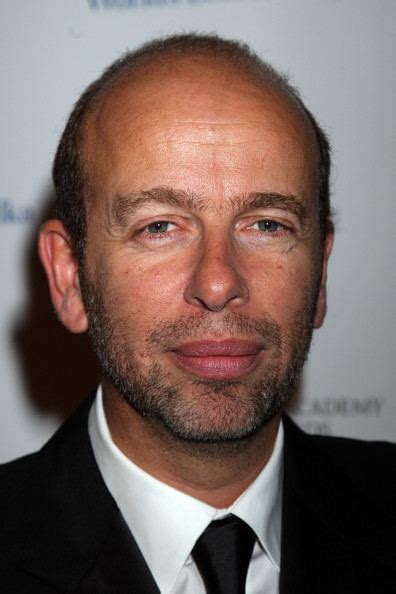Top 52 Quotes & Sayings by Eric Fellner
Explore popular quotes and sayings by a British producer Eric Fellner.
Last updated on April 18, 2025.
The dream was to not only make a good-looking film that engaged, but also had the DNA of the show so the fans would love it and also as important had the opportunity to cross over out of the fans because of the price-point. You make a film that's 60 million dollars you can't just appeal to musical theater fans.
Now there's always exceptions to that and the reason is if the film doesn't really work, whereas before you could rely on a decent amount of DVD sales to prop up the revenue to ensure that you got out in a decent manner, now if the film doesn't work, the film doesn't work and there's none of that DVD revenue to fall back on and you can lose a huge, huge sum of money on a big budget movie.
I think everyone's going to really try to keep costs down. The more you keep costs down, the more freedom you have creatively. I can protect my filmmakers from any form of creative interference, be it from anywhere, if we're all acting in a responsible way and making the pain of a failure be as little as possible.
The pay window will be: you can choose how and when you see, whether you see it on Comcast or Warner's Cable delivery system or Sky in the UK or you can buy it through Apple, or you might even buy it directly from the studio's site. Who knows? But that will be it. You'll go to the cinema and you'll find a way of digitally interacting with the piece; you'll either buy it or rent it or whatever.
The problem with Hot Fuzz and Shaun of the Dead is that they worked brilliantly in the UK, the US, and Australia; internationally they haven't worked so well because people don't know the films as well as in the English speaking languages. So when it comes to putting the budgets together it's quite challenging. So those are the problems you have.
People are piling into England, there's lots of studio films happening there. When we budget our films we multiply it by 1.55 it's much easier than when we multiply it by 2 so the cost looks a lot less in dollars, because everybody talks in dollars in terms of finance. And then the shift that I think is coming, I hope is coming, is movies made in a..."simple" is the wrong word, you visit movie sets all the time I imagine, the whole process has just got so big.
There's always that possibility. But, it would take a hell of a lot of work. Because unlike a movie where you just have to do a little ADR and then some mixing, we've actually got to bring the orchestra back because there is music, as you probably noticed, right the way through the film so you have to orchestrate all of that extra time.
The shifts happen on a regular basis, but it's like a cycle. So things come in and out of vogue and then five years later they're back in vogue. Or there seems to be a theory that this is the way the industry will go and everybody goes over that way and then something happens to the country and you're back again at the place you were.
Then something fails and they're all out again, but DVD revenue is disappearing, you know, it's not disappearing but it's going off a cliff and what that's done is it's polarized the industry in a way that I've never seen before where studios are making less, they're bifurcating their choices where they're either going very, very big or they're just picking up a few rights on an acquisition basis or making really small things.




















